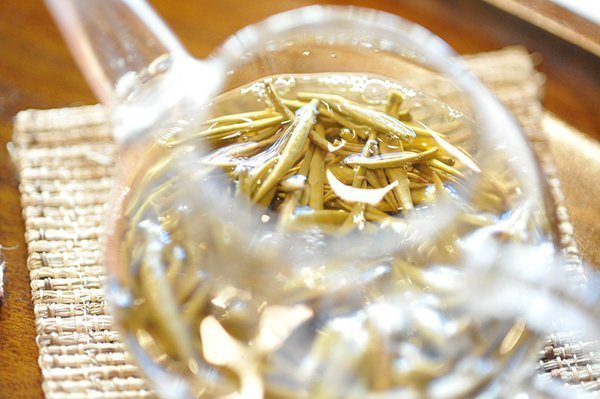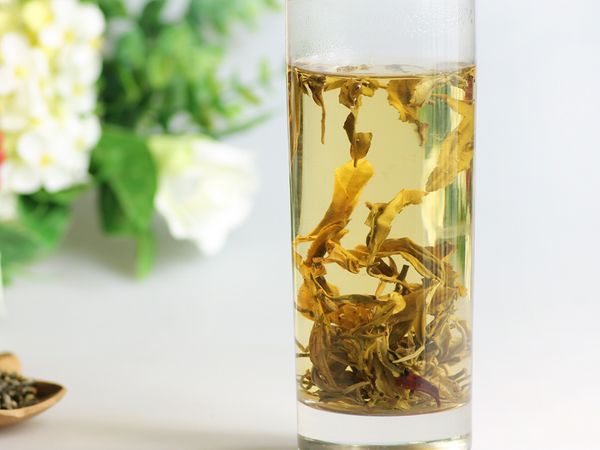
Jasmine tea is a natural drink popular all over the world. Many people like to drink jasmine tea, feel its rich aroma, but also can wake up your brain and refresh.
How much caffeine does jasmine tea contain

1. The jasmine tea made from green tea leaves is the main type of jasmine tea. It contains about 35 milligrams of caffeine per cup (normal size)
2. The jasmine tea made from black tea leaves contains about 50-90 milligrams of caffeine per cup.
3. The jasmine tea made from oolong tea leaves, contains the less, about 30 milligrams.
4. And the jasmine tea made from white tea leaves at least contains about 6 milligrams caffeine per cup(some people think white tea do not contain caffeine, that’s wrong)
The actual amount of caffeine in jasmine tea also depends on several factors, such as how the tea is processed, origin and how it is steeped.
For example, tea bags usually contain more caffeine than full leaves tea, because the fine tea in the tea bag has a faster dissolution rate. Also, too long steeping time can increase the caffeine amount of tea in the cup.
The side effects of jasmine tea

First, insomnia patients should not drink jasmine tea, especially at night before going to sleep. Because caffeine stimulates nerves and keeps the brain in a state of excitatory. This can aggravate the condition of insomnia patient. And heavy consumption of caffeinated jasmine tea or other beverages can cause headaches, jitters or sleep problems.
People suffering from iron deficiency anemia should not drink jasmine tea. This is because the tannic acid in jasmine tea leaves can cause iron in food to form deposits that are not absorbed by the human body, exacerbating anemia.
People suffering from constipation should not drink jasmine tea, because jasmine tea polyphenols have a certain systolic effect on the gastrointestinal mucosa, so constipation patients if drinking tea will aggravate constipation.
Those who suffer from calcium deficiency or fractures are advised not to drink jasmine tea or other caffeine drink. The alkaloids in jasmine tea can inhibit the absorption of calcium in the duodenum, and can also lead to calcium deficiency and osteoporosis, making patients difficult to recover from fractures.
Besides, those who suffer from calcium deficiency or fractures are advised not to drink jasmine tea or other caffeine drink. The alkaloids in jasmine tea can inhibit the absorption of calcium in the duodenum, and can also lead to calcium deficiency and osteoporosis, making patients difficult to recover from fractures.
No comments:
Post a Comment